04 February 2021, 22:00
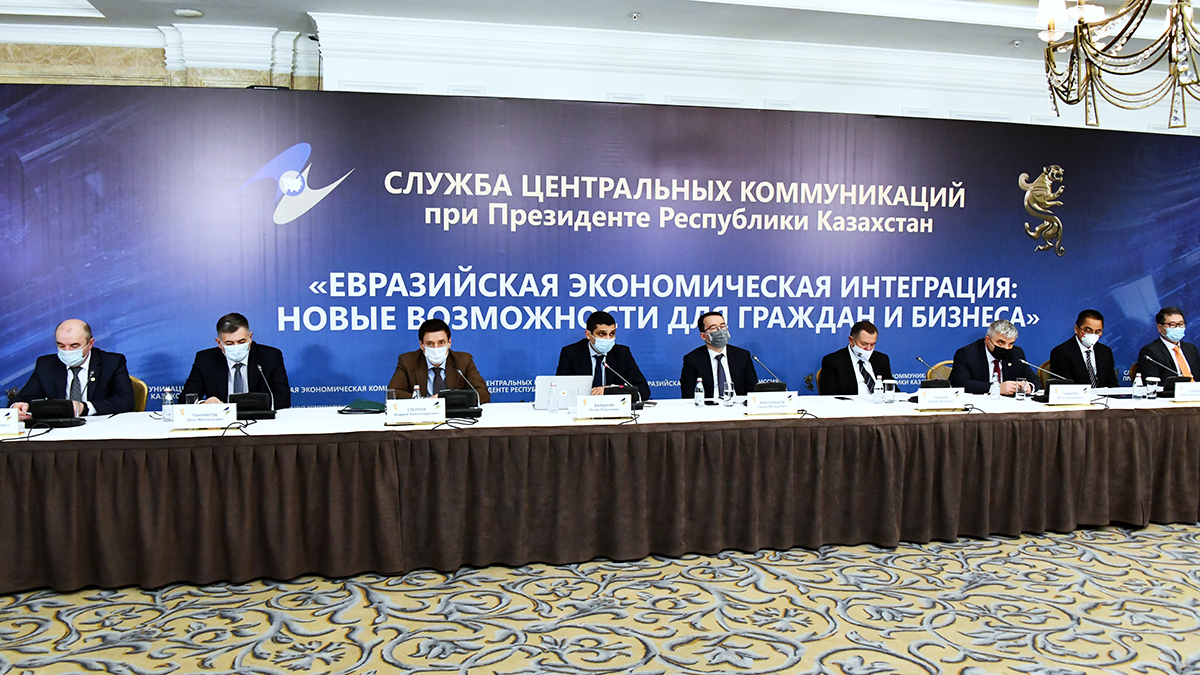
A press conference was held today on the topic "Eurasian Economic Integration: New Opportunities for Citizens and Business" with the participation of members of the Board of the Eurasian Economic Commission.
Prices for petroleum products will be formed depending on market mechanisms
Minister for Energy and Infrastructure Emil Kaikiev shared his vision of the common gas market within the EAEU. According to him, it is too early to talk about the cost of blue fuel.

“Now it is impossible to name specific prices. We now have a program to form a common gas market, in accordance with it, contracts for gas supplies should be concluded at market prices, with the exception of those contracts that go to the implementation of bilateral international agreements,” Kaikiev said.
For example, there are two states that conclude an agreement on gas supplies — this is an international agreement. In accordance with it, business entities conclude agreements between business entities to implement the contract.
“We will have direct agreements, exchange agreements (on exchange transactions) and bilateral agreements between economic entities in order to implement international agreements. There are no mechanisms yet for determining tariffs for gas transportation. At present, international agreements on the common gas market are being prepared, and within the framework of this agreement, the principles of transit transport tariffs for gas will also be established,” he explained.
According to Kaikiev, the signing of this agreement is envisaged in 2022, and this year it is being prepared. It comes into force no later than Jan. 1, 2025, and then it will be possible to talk about certain principles in the formation of prices for gas transit.
The EEC member also commented on the question of how the prices for light and dark oil products in the common market will change.
Prices for oil products will be formed depending on market mechanisms. The conclusion of direct and exchange contracts will also take place. Here, much attention is paid to the exchange trading of oil products.
“Because the mechanism of exchange trading allows to identify an economically justified price level, which gives participants more predictable and consistent conditions. They can work on high mutually beneficial cooperation and fair competition,” he said.
The level of oil prices depends on many factors. These are world prices, national currency rates and a number of other issues.
Answering the question “Will the transition of the EAEU to the K-5 standard be beneficial for exporters and importers?”, the member of the Board noted that these requirements are in accordance with the technical regulations within the EAEU. Among the suppliers Russia and Kazakhstan import oil and oil products - Kyrgyzstan, Belarus, Armenia. Currently, in Russia, Armenia, Belarus, only gasoline and diesel fuel of ecological class K5 are allowed into circulation, in Kazakhstan and Kyrgyzstan — K4 and K5. At the same time, it is allowed to sell fuel of any ecological class in Kyrgyzstan until Aug. 12, 2021. This is due to the conditions for Kyrgyzstan's entry into the EAEU. Therefore, they have time to move to K5 class.
Commenting on the issue of profitability, Emil Kaikiev noted that the transition to K5 is beneficial for oil exporting countries. For oil-importing countries, a rise in fuel prices can be expected.
On transport policy within the EAEU
Answering further questions from journalists, Emil Kaikiev noted that the transport policy within the Union is based on the main directions indicated by the heads of the member states.
For each three-year period, according to the minister, there is a roadmap, in accordance with which work is being built on the formation of transport policy and transit potential.
“We had a roadmap for 2018-2020. Now a map for 2021-2023 is being prepared. And in accordance with the powers of the Union, we act as a platform for consolidating the efforts of the parties,” Kaikiev noted.
Also, as the minister noted, a working group has been created within the framework of the Eurasian Collegium, which includes the deputy ministers of transport of the participating states, representatives of the Eurasian Development Bank, the Eurasian Fund, who are dealing with the issues of transport corridors.
At the end of December 2020, a list of transport corridors and routes was approved that are important for the transit potential of all participating countries. In accordance with the recommendation, which was approved in December last year, states ensure the priority of the development of transport corridors and routes specified in this list, as well as the synchronization of operational characteristics.
“Western Europe - Western China is the world's longest economic corridor with great potential. It is of great importance not only for our countries, but also for other countries of Eurasia. The project requires a colossal investment portfolio. Each country implements its section of the project based on its budgetary and extrabudgetary funds. This is a large and capital intensive project. But nevertheless, the work is underway,” Kaikiev noted.
Currently, according to the minister, work is underway on the Moscow-Kazan highway. It is expected to be completed by 2027 and it will be possible to get from Moscow to Kazan in 6-7 hours.
“The project is being discussed, it does not stand still, it is moving,” Kaikiev noted.
Full digitalization of public procurement of EAEU member states planned for 2025
EEC Minister for Competition and Antimonopoly Regulation Arman Shakkaliyev answered a journalist's question about the mutual recognition of electronic digital signatures.
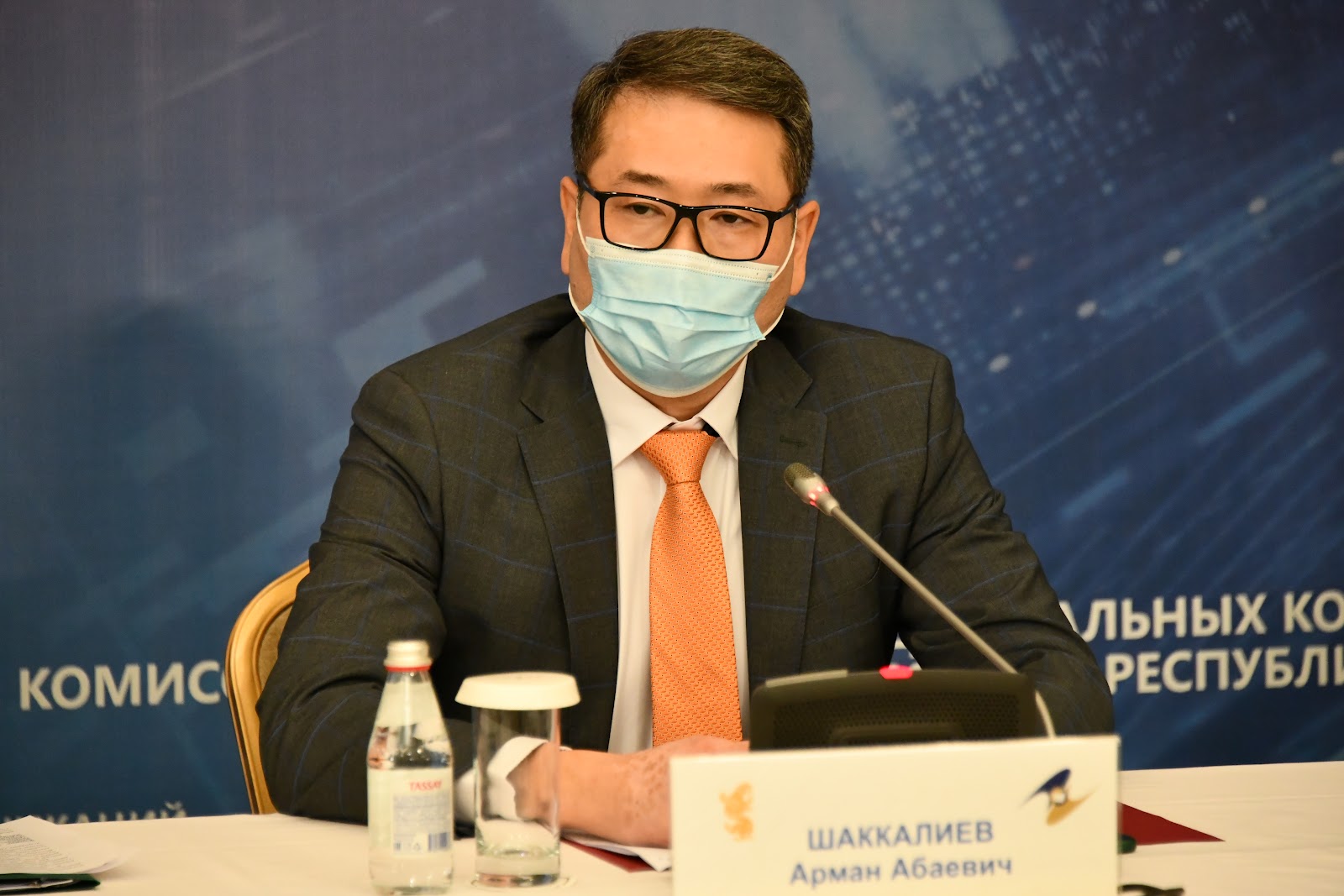
According to him, certain inconveniences arise, since it is much easier to use a home EDS in guest purchases than to go to the country where the purchases are carried out, to open a branch or representative office.
“Today the Commission with the countries has prepared an action plan, in the first half of the year we must approve it. Of course, we proceed from the fact that we have different levels of digitalization of public procurement,” Shakkaliev noted.
There is also the issue of confirming the authenticity of electronic digital signatures and a number of technical aspects. The members of the Commission are currently holding consultations.
The plans of the Collegium in the first half of the year to consider plans providing for country transitions, the so-called cascade plan. At the same time, Arman Shakkaliev added that at the end of last year, strategic directions were adopted until 2025 to carry out a complete digitalization of public procurement in the participating countries.
Recalling last year's experience of cooperation between countries within the framework of the EAEU Treaty, Arman Shakkaliyev noted a point regarding the regulation of public procurement and its interpretation.
“I would like to talk about the opportunities that the Commission creates for business in order to have equal opportunities for participation. At the end of last year, the council adopted the rules for determining the country of origin of goods for public procurement purposes. They came into force on January 12 this year,” Shakkaliev said.
Recently, the opening of the Eurasian register of industrial products was announced. This enables producers of goods to participate on equal terms in public procurement without any additional requirements for confirmation of the country of origin of goods.
“As for the actions of the Government of the Russian Federation, which took place last year, promptly corrective actions were taken and they consisted in the fact that goods originating from the Eurasian Union were given a sign of identity with Russian ones. So it was promptly worked out. And today we don't have to say that these were deliberate actions aimed at restricting goods in purchases,” he explained.
We are able to provide ourselves with food
In turn, a member of the Board of the Eurasian Economic Commission, Minister for Industry and Agroindustrial Complex Artak Kamalyan said that the coronavirus pandemic did not affect the food security of the EAEU countries.
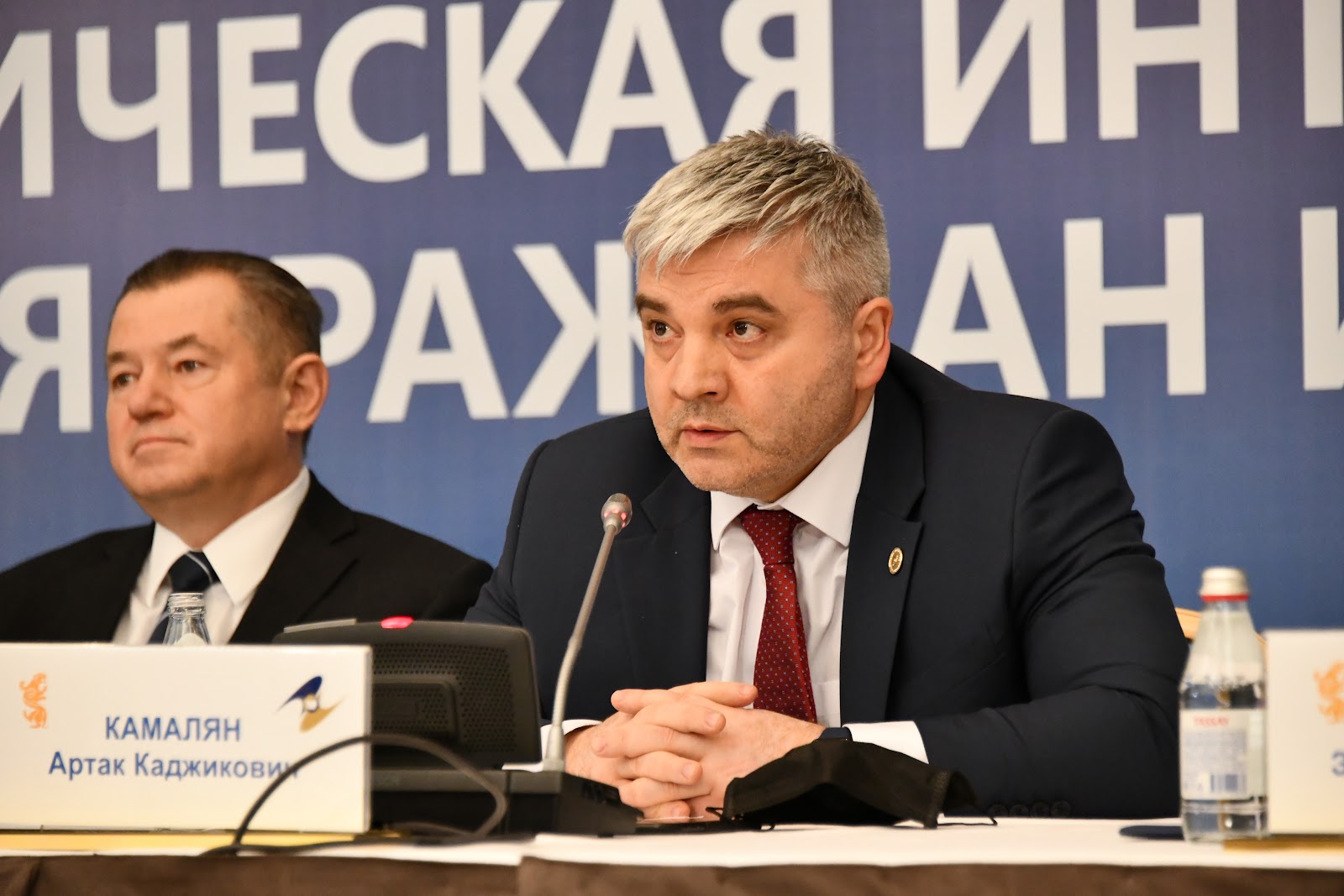
“We are able to feed ourselves. Food security, food quality and safety - the pandemic had little impact. As in last year, and this year, we provide ourselves almost in full for all EAEU product groups. The only thing is import-dependent fruits and berries,” he said.
According to Kamalyan, within the framework of the development strategy there is a direction on general principles and approaches in the formation of food safety.
“This year there were problems with sugar beets due to weather conditions. However, the stock is sufficient. We do not calm down, even though we provide ourselves with sugar, but if we look deeper, then from the point of view of import of sugar beet seeds, the situation is completely opposite. We import 70% of the seeds. About the same amount of corn seeds. We are working to ensure that we are independent and imports are reduced,” he said.
According to Kamalyan, one of the priorities of the Commission's work in terms of agriculture is the development of this industry, given that today organic agriculture is developing quite rapidly.
Kamalyan said that at present this market is estimated at about $200 billion.
“We have done a lot of work and at the level of the Commission adopted the Roadmap, which assumes the solution of two tasks. The first is to unify legislation so that organic products that are produced and certified in one EAEU country would operate in another EAEU country. The second task is to ensure that organic products that are certified within the EAEU could be sold under the same conditions in third countries, especially in the European community,” he explained.
Kamalyan also expressed hope that at the next intergovernmental council, this Roadmap will be approved. In the meantime, work is underway to agree on certain aspects.
Kazakhstan identified development of cooperative production
Speaking about the next stage of the Union's development, EEC Minister for Integration and Macroeconomics Sergey Glazyev noted that the primary effect of regional integration has been exhausted, and the current state and pace of development of the EAEU does not inspire optimism. Division into stages is conditional.
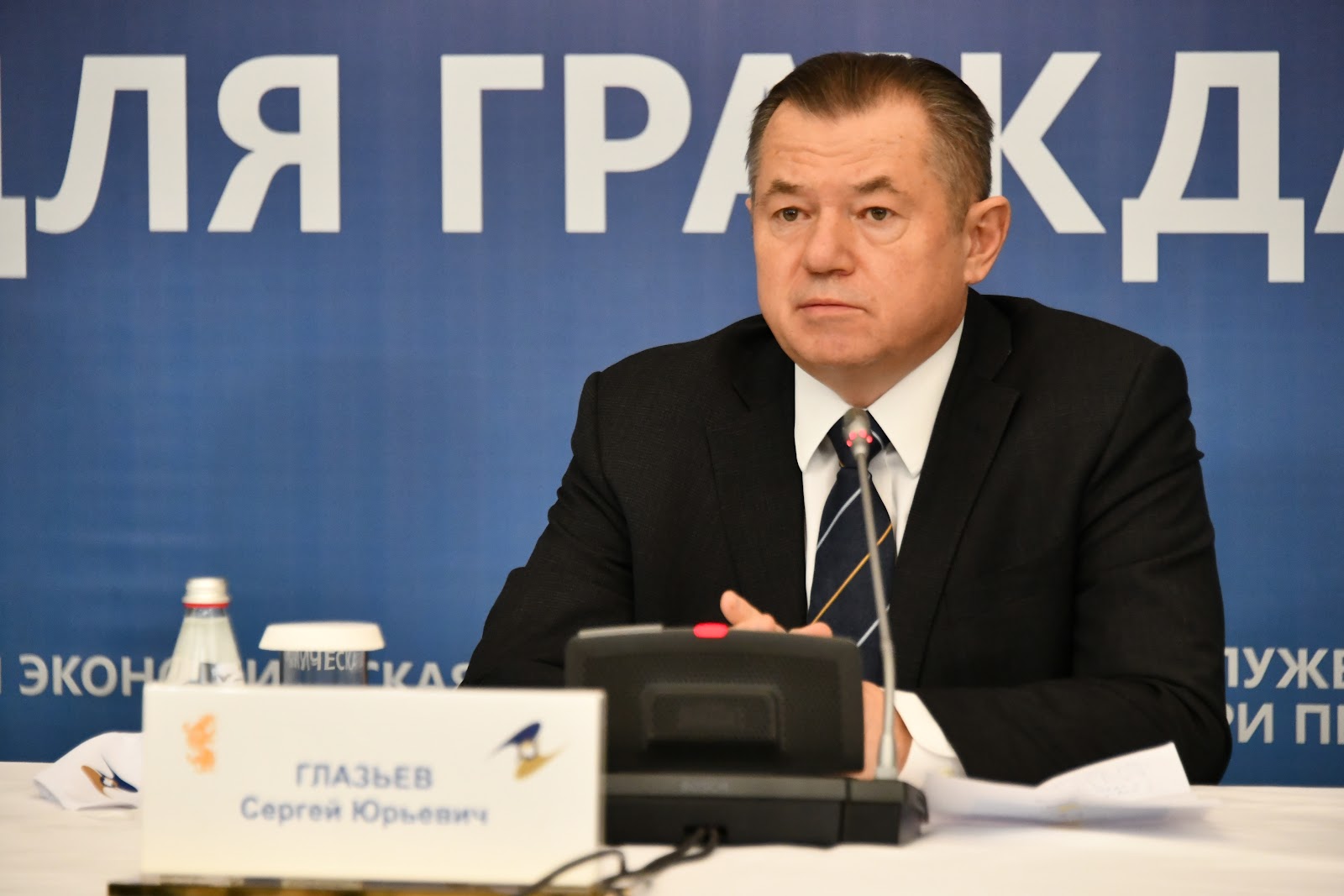
“We have been doing this work for over 10 years, I can say that at the first stage, when we just removed the customs borders, we immediately got an explosive growth in mutual trade. Trade has grown almost one and a half times in two years, because the removal of costs associated with crossing customs borders greatly stimulated the supply of goods, especially cross-border trade has grown,” said Glazyev.
However, this effect was quickly exhausted, starting from 2014, there is a certain slowdown in development. From 2014 to 2019, the gross product grew by only 5.1%. On average, this turns out to be 1% per year.
“While our two partners: the EU grew by 12%, and China by 38%. The only plus is still the growth of mutual trade by 35%. After all, the trade in finished goods, even in semi-finished goods, does not give the main effect in international trade today. The main effect is provided by cooperative ties, more than half of the international trade turnover falls on cooperative deliveries, when joint ventures form long technological chains, work together to create the final product and, thus, combine competitive advantages,” explained Glazyev.
According to Glazyev, Kazakhstan has defined the development of cooperative production as growth. The second stage of Eurasian integration begins right now with the adoption of the strategic directions of the EAEU until 2025.
“We have a whole pool of goals and objectives, we have to create mechanisms for economic growth. The document includes 300 measures of mechanisms, which are grouped in 11 directions. All of them, in one way or another, are aimed at promoting economic development,” added Glazyev.
EEC adopted new methodology of work: Only 70 days are given for consideration of requests.
EEC Minister for Internal Markets, Informatization, Information and Communication Technologies Gegham Vardanyan, answering a question from journalists, assured that when the Commission considers appeals regarding barriers, there is no bias — all issues are considered in the same priority.

“I would like the issues to be resolved at the level of negotiations. There are no priorities, just the questions are different and have different complexity. We see some part in the violation of some articles, very often this is just an action, and the qualification of an action is also a rather complicated process: you need to collect facts. At the same time, countries themselves very often ask to hold consultations, which also takes time,” replied the member of the Board.
He also added that adjustments and time limits have been made to the work of the Board for greater efficiency.
“I would like to emphasize that we have recently carried out a new methodology of work, within which the work will already be limited to 70 days. That is, the questions that will be received by us within 70 days, respectively, should be submitted for consideration by the Board. I would like to emphasize: there can be no prejudice and, accordingly, there is nothing to refute,” the speaker summed up.
Vardanyan also answered journalists' questions about improving the work on prompt response to business problems at the borders.
“In fact, we have an information resource. There you can get certain information and make your suggestions. That is, contact us to consider emerging problems, to receive and transmit operational information. And there are plans to improve this resource. This issue, as well as the methodology, was raised by the Republic of Kazakhstan,” the EEC Minister noted.
Customs control should be selective
EEC Minister for Customs Cooperation Oleg Pankratov, answering a question about violations of the Treaty, stressed that customs control should be selective and based on a risk management system. He made a documentary argument.
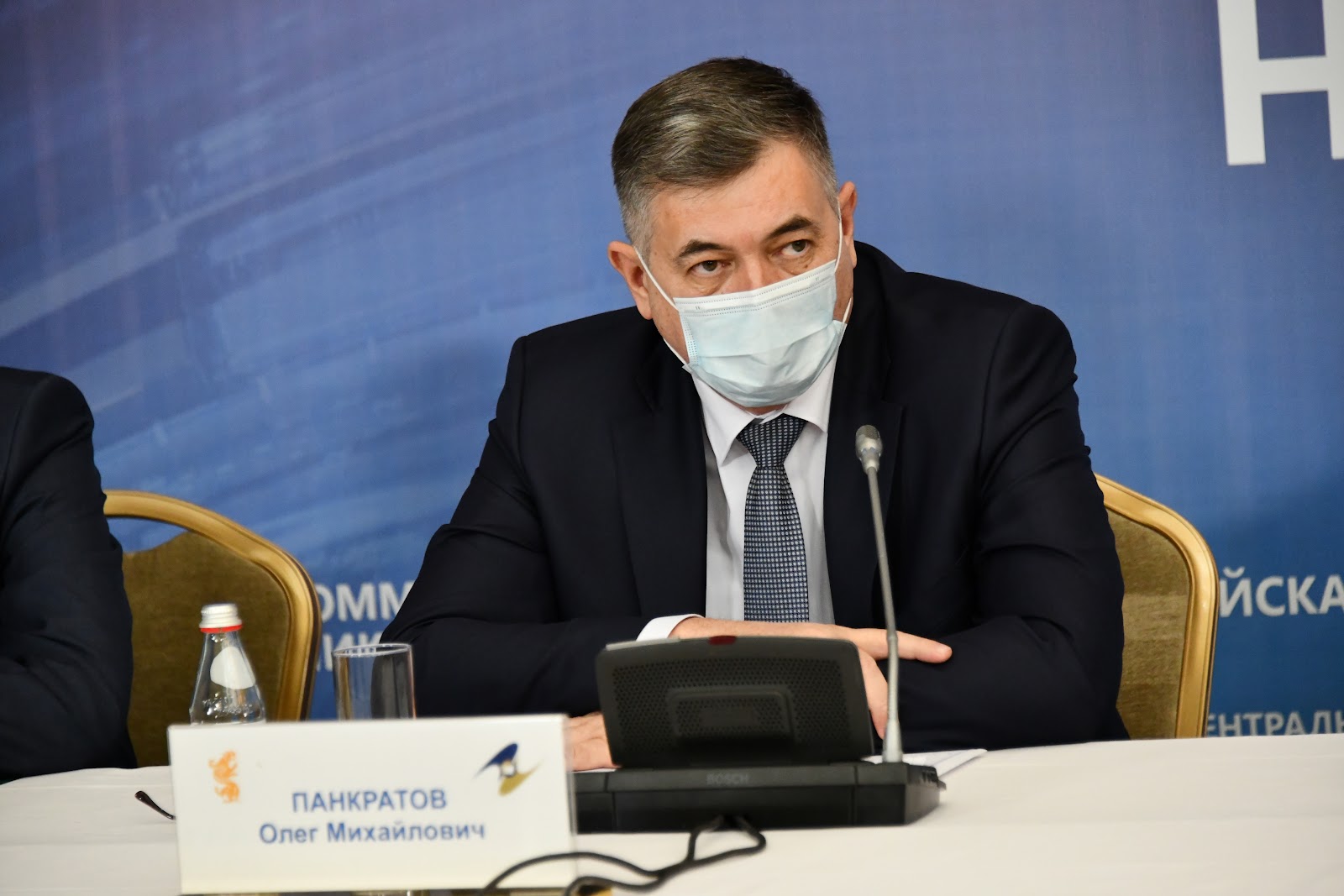
“The 25th article of the agreement on the EAEU defines that freedom of movement of goods is ensured in our country and the Customs Code is also built on ensuring this freedom. Our common customs territory does not imply any kind of continuous customs control at the internal borders of the EAEU. But at the same time, Article 331 of the Customs Code makes it possible to carry out post-customs control in case there are suspicions that the goods were brought in by illegal means, or any special customs regimes were applied to the goods. But at the same time, the same article implies that control should be selective and built on a risk management system,” the EEC representative replied.
He also added that there are other nuances. A single customs territory presupposes a single customs tariff on the outer perimeter. In practice, the situation is slightly different.
“Most countries have certain exemptions. If we talk about Kazakhstan, then Kazakhstan's accession to the WTO has led to the fact that we have very different customs tariffs that are applied on the external circuit. Kazakhstan has more than 3 thousand seizures. There is the Burabay agreement, which defines the procedure for interaction between the parties to fulfill Kazakhstan's obligations. Kazakhstan undertakes to ensure that these goods are circulated only in the domestic market of the country. Neighboring bordering countries received the right to exercise certain control over these goods, so that they do not fall on their territory,” explained Pankratov.
According to him, this is a temporary measure — the so-called transition period.
On use of palm oil
Food industry enterprises of the countries of the Eurasian Economic Union should start preparing for the upcoming tightening of requirements for palm oil used in products. This was stated by a member of the Board, Minister of Technical Regulation Viktor Nazarenko.
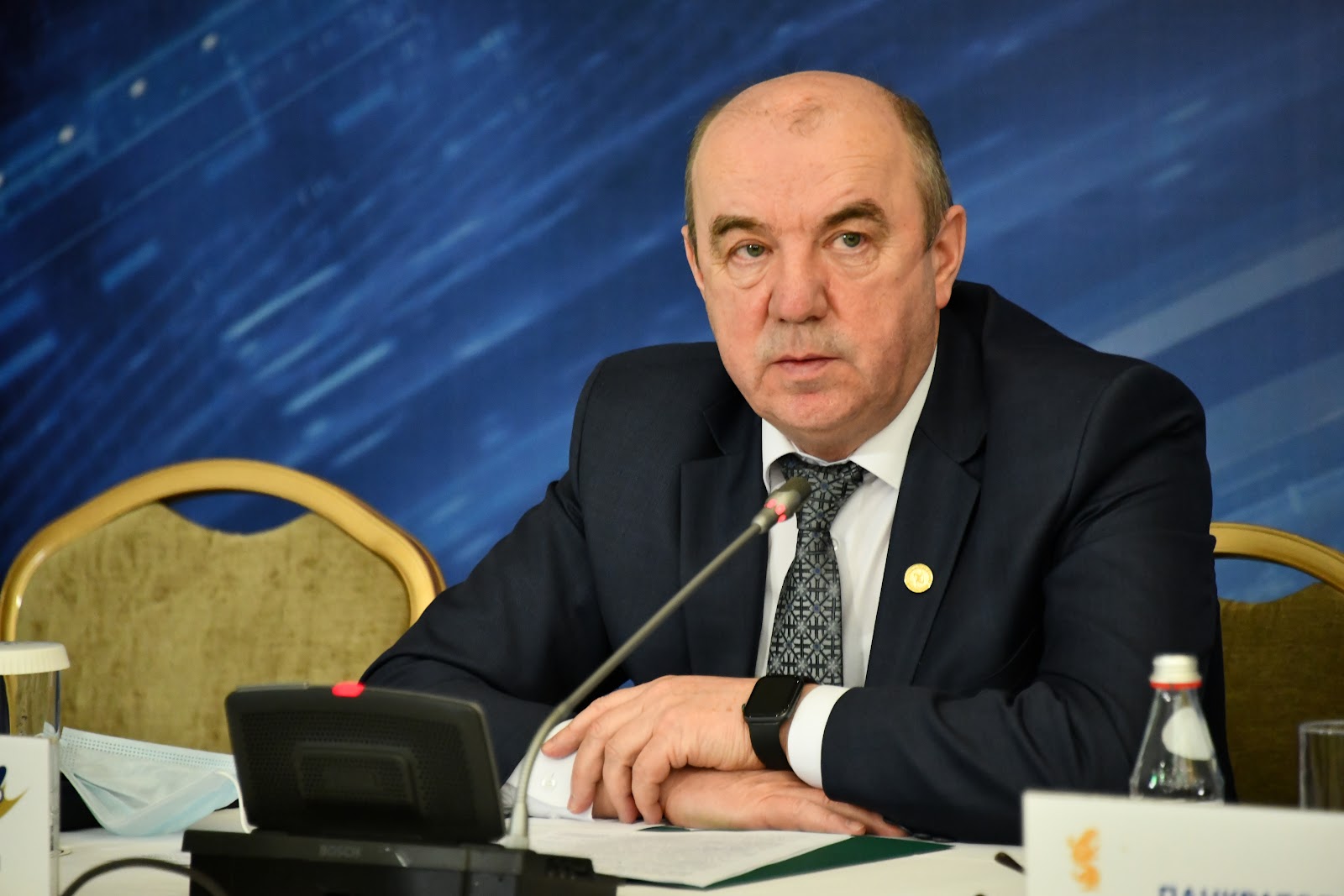
Viktor Nazarenko noted that palm oil is one of the most widespread edible oils, along with soybean, rapeseed and sunflower oil.
“The question is not in the form of an oil, the question is what chemical contaminants exist in these oils, and this is especially true of glycidyl esters of fatty acids. Therefore, the EAEU made an unambiguous decision to regulate the content of these chemical contaminants. And the first step that was taken was the introduction of requirements similar to those in Europe into the unified sanitary rules,” he said.
The EEC Minister said that today, active work is also underway to introduce the relevant requirements into the technical regulations for fat and oil products.
“It is very important for us to deal with raw materials. Next in line are two technical regulations, which relate to the general regulations for food products and technical regulations for certain types of specialized food products. That is, everything is strategically determined,” he stressed.
According to Viktor Nazarenko, in the near future, changes in the technical regulations for fat and oil products will be submitted to the Supreme Eurasian Economic Council for consideration.
“But I wanted to point out that this is a new requirement that the industry is not ready for, most testing laboratories are not ready, and so on. It is necessary, without waiting for the period when it appears in the technical regulations, thanks to the presence of uniform sanitary requirements, today the industry is preparing for the fact that such an indicator will be in the near future. And everyone will need to prepare their enterprises, test complex and work with the new requirements,” said the EEC Minister.
EAEU does not plan to introduce a single currency
Minister of the Eurasian Economic Commission for Economics and Financial Policy Timur Zhaksylykov noted that there are no such plans in the development strategy until 2025.
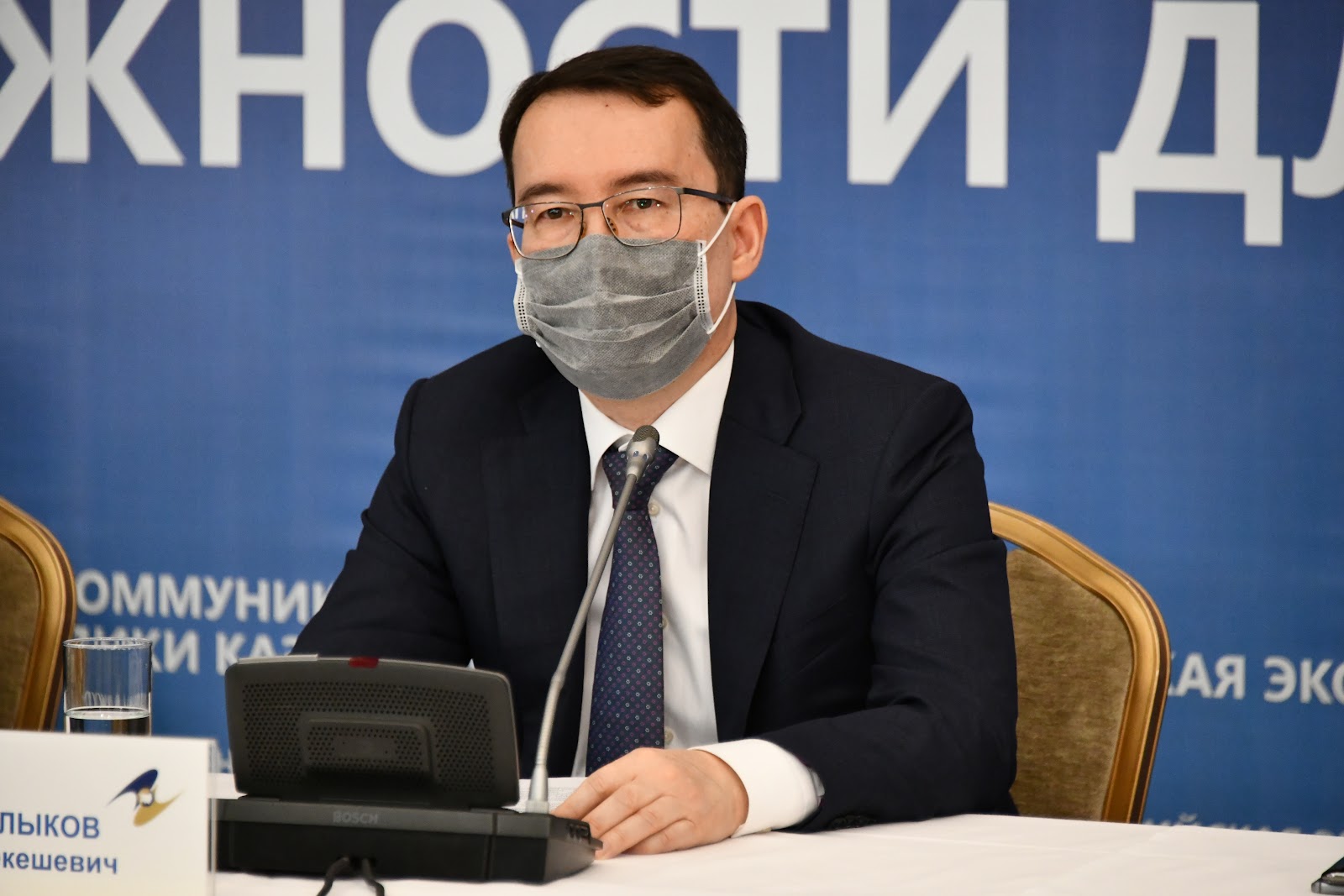
“Not a single agreement within the EAEU, no other act within the EAEU speaks of the introduction of a single currency and there are no such plans. There are no such plans in the development strategy until 2025, negotiations on this are not being conducted, this topic is not being discussed,’’ the EEC Minister noted.
According to him, the share of mutual trade in the EAEU trade turnover is quite low, in contrast to the European Union.
“So far, the share of mutual trade in the total foreign trade turnover does not exceed 15%. If we turn to the example of the European Union, then the share of mutual trade in goods, services, investment flows in the total foreign trade turnover reaches 60-70%,” he said.
Zhaksylykov noted that the use of national currencies in mutual settlements in the EAEU is growing.
“The use of national currencies in mutual trade is growing from year to year. If we take statistics, then in 2013, at the stage of the Customs Union, when three more countries were included, our share of mutual trade in national currencies was about 63%, by the end of 2019, based on statistics for five countries, mutual trade in national currencies was 74% , we see such an entertaining growth,” said Zhaksylykov, adding that about 70% of settlements are carried out in rubles.
According to him, the dollar accounts for about 19% of settlements, the euro — about 7%.
Stay updated about the events of the Prime minister and the Government of Kazakhstan - subscribe to the official Telegram channel
Subscribe